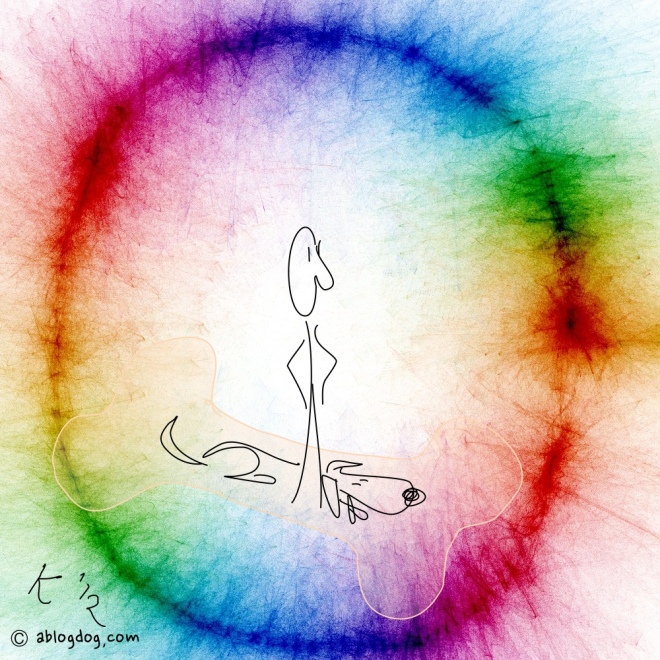No, it’s not about the matrix. And I don’t think life is a dream. I’m not even talking about Kant’s Ding-an-sich / Welt-für-mich. For simplicity’s sake, let’s assume that the physical world we experience really is the way it seems to us. Even then:
– Heresy n°1 –
98% of reality is simply what we choose to believe.

Split reality
2%of our world is what I call “imperative reality”. This is reality that we ignore at our peril. Not respecting it carries swift and sometimes fatal punishment. Illusions that you can fly off a tall building generally don’t last long. So we can easily agree that things fall down. This does not mean that we need to agree on gravity. If someone chooses to believe there are invisible imps that push things down, however ridiculous that belief may be, there’s nothing to stop them. There is no natural penalty attached to ridiculous beliefs, only to ignoring the “imperative” facts.
Another 8% of reality consists of scientific, or testable, facts. These however can be ignored with impunity. Evolution e.g. is easily proven to anyone who accepts the scientific method, but there are still people who reject it. These people don’t drop dead, indeed they can live long and healthy lives. A bit annoyingly, they can enjoy all the mod cons provided by science, with their minds firmly stuck in the dark ages.
The remaining 90% of reality are things like expectations, abstract ideas, value judgements, philosophical theories, psychological explanations: This time I’ll do better. What is justice? Or freedom? It is good to help others and bad to be late. Does God exist? Is epiphenomenalism true? Do we have free will? What is A’s real motivation? Is B a true friend? Why did C do that?
What does “true” mean?
For the first 10% of reality, I have an idea of what it means for something to be true. Something is true if adding it to my worldview allows me to make better predictions about the future. This also gives me way to decide whether something is true. Choose something relevant, make a prediction with the idea, and with it’s negation. Then see what really happens.
Personally, I find the old “adaequatio rei et intellectus”, the correspondence of mind and reality, a bit circular. How do we check the correspondence? We can only compare our mind with … our idea of the thing – which is still our mind.
And while a coherent world-view may be elegant, I think our views are at best “locally coherent”, i.e. they don’t obviously contradict the other ideas we commonly are aware of at the same time (I’ll come back to this another day).
As for saying that something is true, if it’s satisfactory to believe it…
What about the other 90% reality? What does it mean to say “epiphenomenalism is true”, or even “God exists”. These are statements that have no testable consequences, so my own definition above doesn’t work. The classical definition of truth fares no better: you can’t have an adaequatio rei et intellectus, because there simply isn’t a res. The same goes for value judgements, or statements about abstract ideas.
So?
Without a clear idea of what it means for 90% of reality to be true, maybe we should just accept that it’s largely subjective. Then we can stop arguing about it. This does not mean it doesn’t matter what we think, or that there is no reasonable way of choosing between two conflicting views. Just that the way to do it is not their “truth” value.
© K / ablogdog.com 2012. Please respect the copyright notice.




